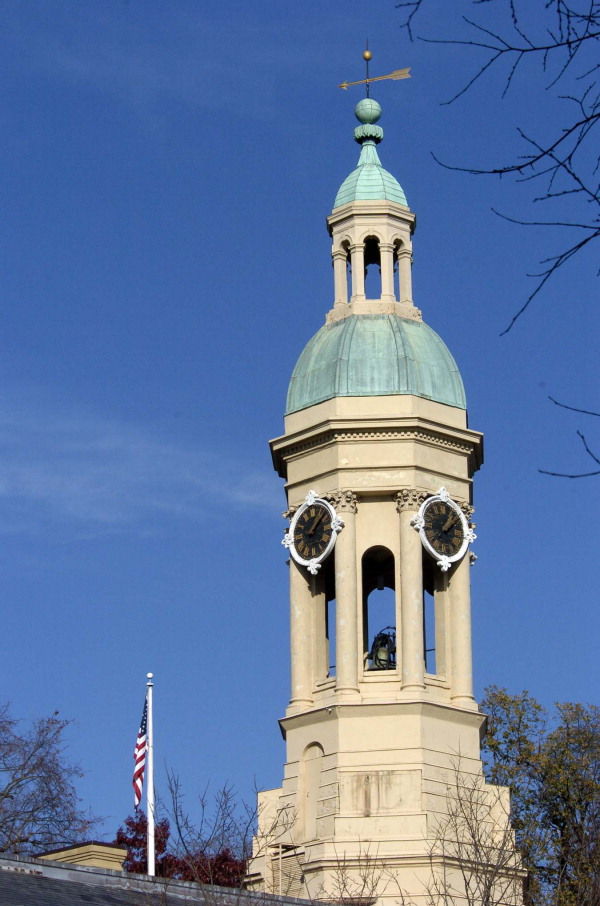By Philip Sean Curran, Staff Writer
Princeton University released two reports this week giving contrasting pictures of the amount of sexual misconduct that students are experiencing at the Ivy League school.
On Tuesday, the school issued the findings of a confidential online survey on the issue in which 4,115, or 52 percent, of all 7,862 university students completed between March and April.
Twenty percent of students, male and female, said they had been the victims of some kind of “inappropriate sexual behavior,” including 4 percent of whom said they had been raped during the 2014-15 school year, the survey found.
In particular, 34 percent of female undergraduate students, 14 percent of male undergrads, 19 percent of female graduate students and 6 percent of male grad students reported being the victims of inappropriate sexual behavior that ranged from sexual harassment to rape.
By comparison, the school’s Department of Public Safety, in its annual Clery crime report issued Wednesday, said there were eight reported rapes in calendar year 2014, compared to six in 2013. Those eight were broken down as four on campus and four in a non-campus building or property, although a footnote in the Clery report said the increase in the noncampus category from 2013 to 2014 “reflects data collected from our domestic and international programs, rather than just domestic programs.” The university did not provide further explanation of the footnote.
Yet no one was held criminally responsible for committing the rapes.
“There were no cases of sex assault from Princeton University prosecuted in 2014,” said Mercer County Prosecutor’s Office spokeswoman Casey DeBlasio on Wednesday. “There were no allegations of sex assault reported to our office for investigation.”
“If a victim reports a sexual assault to DPS, Public Safety will investigate,” Princeton spokesman Martin A. Mbugua said by email Wednesday, using the acronym for the Department of Public Safety. “The law requires that DPS provides the information about the sexual assault to the Mercer County Prosecutor’s Office. Such a sexual assault report would be part of the annual statistics.”
In past years, the number of sex offenses listed in the Clery report was higher because it also used to include reports that students made to confidential advisers.
But the school stopped that practice, saying it would only include in its crime statistics what federal law requires. The Clery report, however, showed that “the number of reports received by our confidential advisers was 28 sexual offenses …, the report said.
The survey findings and the Clery report, issued on back to back days, offers an insight campus crime—an issue that has received much focus at schools around the country.
Princeton and other universities had come under fire from the Obama administration about how they handle allegations of sexual assault. In November following an investigation, the U.S. Department of Education said Princeton had failed “to promptly and equitably respond to complaints of sexual violence.”
As a series of corrective steps, Princeton lowered the burden of proof in how it investigates sexual assault claims that one student makes against another. Also, it now allows accusers to appeal decisions when the alleged assailant is exonerated in the university judicial process.
The online survey findings were contained in the report, “We Speak: Attitudes on Sexual Misconduct at Princeton University.”
The report found that “drugs, alcohol or both were cited as a factor by many students who said they experienced non-consensual sexual contact.” Elsewhere, it said “the large majority of undergraduate women, undergraduate men and graduate men identified the person who had assaulted them as another Princeton student.”
Princeton University President Christopher L. Eisgruber released a letter Tuesday to the school community in which he called the survey findings “heart-breaking.”
“They demonstrate that too many of our students, classmates, and friends have been victims of sexual misconduct and violence on this campus. They also underscore the urgent need for all of us to do more,” he wrote.
Among other questions, students were asked if they had been sexually assaulted, who was the assailant. The answers found that:
* 93 percent of female undergraduates and around 75 percent of female graduate student said it was a man
* 63 percent of male undergraduate victims and roughly 70 of male grad students said it was a woman. In those other cases, it was a male on male assault.

